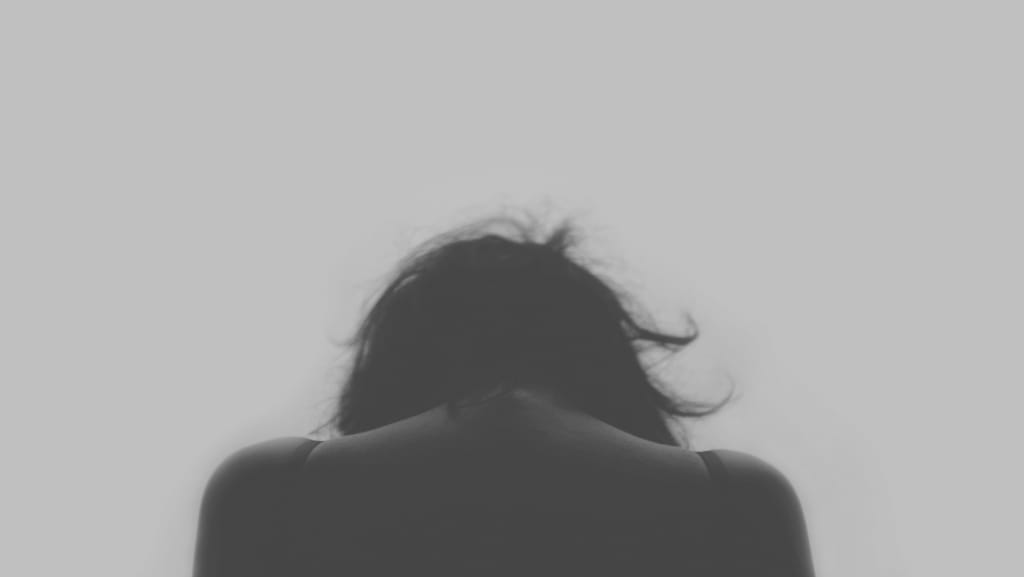Looking from the abyss; I asked people who survived abuse five questions
For those who cannot see a future, those who give up everyday, who think their pain isn't felt, you're heard.

"You gain strength, courage, and confidence by every experience in which you really stop to look fear in the face. You must do the thing which you think you cannot do."-Eleanor Roosevelt
Abuse shapes you every day of your life, your thoughts, actions, ideas, can all be traced back to this time of your life you spent in survival mode. Abuse, whether it’s physical, emotional, from a caregiver or a partner is a cycle that needs to come to an end. I might describe it as the wheel of fortune, you spin the wheel and you never know what you’ll get in return. Healing is a long path that lies between feelings of “it’s my fault” or “I deserve it” and “I want my abuser to suffer even in the aftermath”. But the blame is only for the abuser, and the sin alone is for the abuser. I believe that sharing stories of others will help inspire those who think that they're looking at the abyss alone.
I asked different people who share the same pain about their abuse and here are some answers
When did you know that you can't stay anymore and that you should leave?
Person #1
I was a child when it happened. 2-14 years old. It wasn’t until I was about 19 I stopped communicating with my grandfather completely and 24 when I stopped communicating with my grandmother
I knew something was off but couldn’t put my finger on it and wanted to escape when I was a teen but I was unable to
I ended up adapting to the situation
Person #2
I was a child - I couldn't leave. I did start successfully avoiding this person so the abuse stopped. They died when I was 13
Person#3
My friends explained to me that what my parents were doing isn't how it's supposed to be when I was 15. Before that, I thought the better families were just exceptional
When I was 17, I had a huge fight with my mother over photos of me that I didn't want on display for everyone to see. She restricted my breathing and hit me, over and over again. That's when I packed my bag and ran away for a full week
I contacted the authorities and afterwards, moved in with her again, and since then, I wasn't hit by her anymore. So, I decided to give her another chance
Person#4
It was when she snapped at me for calling her. I hadn’t heard from her in hours and I was concerned, so I called and she berated me. That day all the red flags I ignored started sticking out
How do you feel being pointed to as an "abuse survivor" or a "victim of abuse"
Person#1
I prefer the term survivor
Person#2
In my experience these terms are not well understood by people who haven't suffered abuse. They are helpful when talking to people who understand them
Person #3
I don't actually know. I was suicidal from age 13 to 19, and I survived, and yes, it's them who put me there. Both are fitting, for sure. I still kind of don't like the sound of them
Person #4
Where I’m from, people don’t mention abuse that much when it doesn’t happen to women, so I try to be as open about it as I can do any other guys going through it know that they’re not alone
When you were at your worst, how did you cope?
Person #1
When I was at my worst I did self harm, I couldn’t sleep or made myself not sleep, I was severely depressed and made impulsive decisions. I was angry and cried a lot
Person #2
Therapy helped me cope. I spent a lot of years and had a lot of trips to mental hospitals to get better
Person #3
As long as I can remember, I escaped to my own mind. To fictional worlds, mostly fantasy. The more different it was from this world, the better
As a child, when I was hit, I would close my eyes and imagine that I was a warrior who was fighting against a huge creature. My shield had broken, and I couldn't fight back right now because I had to wait for backup. Of course, the backup never came
That was just the fantasy I then put myself to sleep with
When I was older though, I started getting problems with imagining things as my depression got worse. I resorted to unhealthy coping. Alcohol, self harm. Mostly, I just didn't cope at all though, until I started therapy when I was 17, and that was the only thing that actually helped me get better (and still does)
Person #4
I’m not proud of this one, but when I was at my worst with her, I self harmed. I would strike myself in the head because it made my brain be quiet for once. But now that I’m rid of her, I’m six months clean and it’s not something that I ever want to repeat
In the process of healing, does it help knowing the motives or trauma of your abuser and empathizing with them?
Person #1
It helps to know the motives SOMETIMES. It doesn’t help when you feel like excuses are being made. I don’t believe it’s beneficial to empathize whatsoever. There’s nothing to emphasize for. They made that decision
Person #2
It didn't help me in the beginning - mainly because I was so hurt and angry. Later on after I became a survivor instead of a victim, it did help put things in perspective
Person #3
I guess. I know that they grew up with even worse parents, so I get that it's just normal for them. It especially helped me realize that I can't fix them
Person #4
It doesn’t help at all in my case. She had no reasons that were, to me, deserving of empathy, and if anything it made me more upset to know them
What did you learn from what you went through?
Person #1
How incredibly determined and strong I am. It took a lot of therapy and strength to get to where I am now in life after all that happened
Person #2
The lessons are too complicated to begin to explain
Person #3
That I don't want to make others feel that way. That I want to be like the people who made me go on, not like the ones that made me miserable
That others need help too
Person #4
I’ve learned that grappling for control of your own life isn’t love, and you shouldn’t sacrifice your friends because your significant other doesn’t like them or wants you to themselves
Now that you've come this far, we're all looking at the abyss with you. From others experiences , they're here today to tell you that there's an end and you'll write this end. It doesn't matter who your abuser was to other people, it only matters how you remember this person. It's always the abuser's fault, never yours.
About the Creator
Raghad Khaled
I'm a Freelance writer who's interested in feminism, politics, psyche, and art. .One of my biggest wishes is to write my own book in the future. For me, writing is a candle, it lightens up the dark around me.






Comments
There are no comments for this story
Be the first to respond and start the conversation.